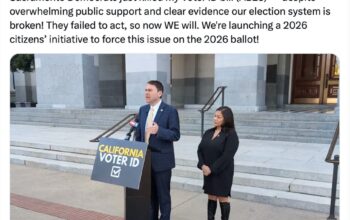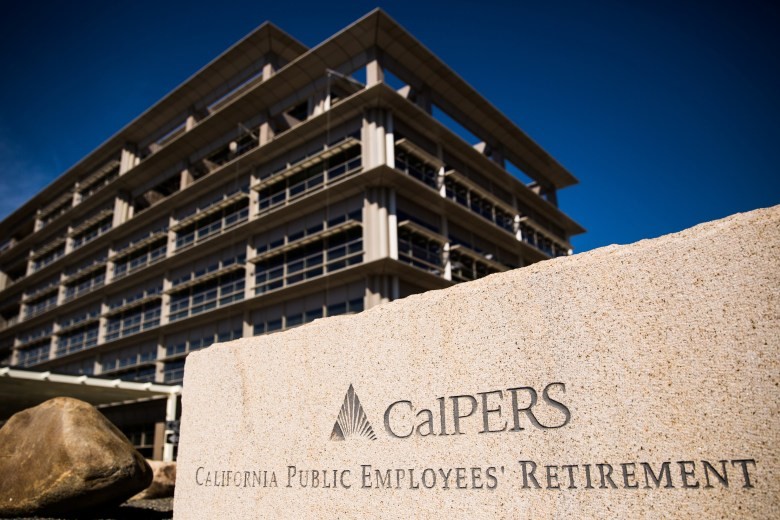Disclosure: I have not endorsed any candidate for Governor on the Recall—but, as you know support the Recall of Gov. Nuisance..
We need a GOP candidate that is articulate, experienced and willing to support the Republican Party and Constitutional principles. That means we can not have a candidate that said in 2016 he would never, ever vote for Donald Trump for President, someone who think Arnold was a great Governor and Whitman was a great Republican (she endorsed Clinton in 2016 and Biden in 2020).
“California resident Richard Grenell, an American diplomat and politician who served in both the Trump and George W. Bush administrations, has been making some unusual and very welcome noise on Twitter. Interspersed amid his more conventional conservative commentary are calls for California to invest in infrastructure, and not just any infrastructure.
On March 20, Grenell tweeted “I hereby order an LNG terminal to be built ASAP on the West Coast of the United States (preferably in California).” Later that day, he added “I hereby order multiple desalinization plants to be built in California. And I also hereby order new Nuclear power plants to be built in California.”
If he decides to run, he will become, overnight, the leading candidate for Governor. He has the ability to raise money, nationally—and would have an immediate grassroots campaign to back him.
Richard Grenell Calls for Common Sense California Infrastructure

The only politician on the West Coast willing to support common sense infrastructure: nuclear power, desalination, and natural gas
By Edward Ring, California Globe, 3/23/21
California resident Richard Grenell, an American diplomat and politician who served in both the Trump and George W. Bush administrations, has been making some unusual and very welcome noise on Twitter. Interspersed amid his more conventional conservative commentary are calls for California to invest in infrastructure, and not just any infrastructure.
On March 20, Grenell tweeted “I hereby order an LNG terminal to be built ASAP on the West Coast of the United States (preferably in California).” Later that day, he added “I hereby order multiple desalinization plants to be built in California. And I also hereby order new Nuclear power plants to be built in California.”
It’s too bad Grenell isn’t running California. He is not only emphasizing “infrastructure,” an overused, wonky term that is an obligatory part of every politician’s stump speech, quickly forgotten once they take office. Grenell is emphasizing the right stuff.
Each of these projects is considered off-limits by the green technocrats that run the state. You know, people who will pad their personal wealth by additional billions as they sell us the hardware to “manage” our consumption of energy and water. Sold as “incentive based” conservation, the tech companies, working closely with extreme environmentalist pressure groups, want to surveil and ration these building blocks of prosperity.
What Grenell understands is not only will the projects he’s advocating make rationing unnecessary, eventually they will lower the cost to ordinary consumers for these commodities.
Nuclear power ought to be the easiest policy choice, but despite new plant designs that makes nuclear power safer than ever, California is moving backwards instead of forward. After shutting down the San Onofre nuclear power plant in 2013, a plant that could have been retrofit as easily as it’s now being decommissioned, California’s PUC is now planning to shut down Diablo Canyon nuclear power plant.
Beyond safety concerns, which ought to be easily addressed in an honest political and media debate, there are economic arguments against nuclear power. But they don’t hold up. The capital costs to build nuclear power plants are coming down because of modern innovations that offer smaller-scale, modular, plug-and-play systems. Most of the excessive capital costs are driven by excessive regulatory hurdles.
Least credible, but often cited as well, is the argument that continuous electricity will overwhelm storage resources during periods of full sun or high winds, which put surplus renewable power onto the grid. California exports power during these periods, and is the nation’s number one importer of electricity when renewable output falters. There are only two solutions: more continuous power, and more storage capacity. Breakthroughs in the cost of electrical storage are bringing those costs down. But if California is determined to convert millions of vehicles and homes to all-electric power, clean nuclear power needs to be part of the solution.
Desalination, while equally anathema to environmentalist extremists, at least has a chance in California. One large plant already operates, the Carlsbad plant near San Diego. Against frantic opposition, another plant is moving towards approval in Huntington Beach. Combined, these plants will provide 120,000 acre feet of water per year, while drawing only 60 megawatts of power, no more than it takes to pump this water through California’s extensive aqueducts into Southern California. And while desalination is absolutely vital to offer another source of water to over 20 million Californians who live in the state’s arid south, it also is economically feasible.
Currently over 2.5 million acre feet are pumped from north to south to supply the water districts of Southern California. It would require a construction expense of at most $15 billion – that is the “California price,” that takes into account decades of permitting delays, litigation, labor negotiations, and absolutely perfect environmental mitigation built into the designs – to build a 1.0 million acre feet per year desalination capacity onto the California coast. That equates to less than $200 per rate paying household per year, before issuing general obligation bonds to lower that burden still further.
With a combination of desalination and wastewater reuse, California’s southern coast water districts could become 100 percent independent of imported water. Along with the resiliency and abundance this would impart to residents, imagine the benefits to farmers and environmentalists that could put all that water to good use upstream.
Completely off the table, for no good reason, is development of natural gas. California sits on over 12 trillion cubic feet of proven natural gas reserves, yet has to import natural gas. To cope with this, along with “climate change,” California’s policymakers are attempting to gradually eliminate use of natural gas in California. This is an incredibly costly, ultimately futile act, since fossil fuel consumption worldwide isn’t about to slow down, nor should it. The fast track to prosperity requires cheap energy, and the best thing that can happen to the global environment is for developing nations to quickly achieve universal prosperity, since prosperity is invariably accompanied by lower birthrates. Shall the planet support 12 billion humans, or 9 billion humans?
Back in the more sensible 1990s, the prestigious Worldwatch Institute used to harp on the role of natural gas as the essential “transitional fuel,” cleaner than coal or oil, and necessary to buy humanity time until totally clean energy – nuclear fusion, hydrogen – could become commercially feasible.
Grenell deserves praise for being the only politician, certainly on the West Coast, who is willing to support common sense infrastructure: nuclear power, desalination, and natural gas.



